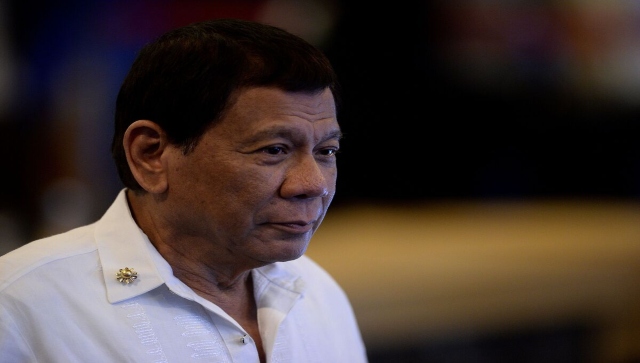In the heart of the Philippines, a storm of political unrest brews, threatening to tear the nation asunder. Former president Rodrigo Duterte has unleashed a barrage of attacks against his once-ally, current President Ferdinand Marcos Jr., plunging the country into a constitutional crisis of unprecedented proportions.
“When I was the mayor, the drug enforcement office showed me a list, your name (Ferdinand Marcos Jr., ed) was there but I don’t want expose you because you are a friend, we know each other. But you started, you entered into a conflict. Mr President, you might follow the fate of your father, and what I was afraid of, it will divide the nation, it will be a bloody time,” said former president Duterte. “Reject, protect the constitution. I am calling now the armed forces and police, don’t forget us civilians, don’t think of one family only (the Marcos family, ed). Son of a whore.” An unexpected rift The rift between Duterte and Marcos Jr. comes as a shock to many, considering their previous political alliance. Duterte’s daughter, Sarah Duterte, serves as Marcos Jr.’s Vice President, highlighting the intricate web of familial and political connections in Philippine politics. At the core of this conflict lies a relentless pursuit of power. Duterte’s accusations against Marcos Jr. revolve around the latter’s alleged ambitions to alter the constitution, particularly regarding presidential term limits. This move, if true, could signal a dangerous slide towards authoritarianism, reminiscent of the regime of Ferdinand Marcos Sr., Marcos Jr.’s father. The spectre of Ferdinand Marcos Sr.’s dictatorial rule looms large over the Philippines. His oppressive reign, marked by human rights abuses and economic mismanagement ended in ignominy with a popular uprising in the 1980s. The subsequent constitution, crafted to prevent the rise of another dictator, could now face its greatest test yet. A dangerous proposition Marcos Jr.’s purported desire to amend the constitution raises alarm bells, especially given the turbulent history of the Philippines. Duterte’s vehement opposition to these changes stems from his fear of history repeating itself, with the nation once again descending into chaos and division. While Marcos Jr. cites the need for economic reform as justification for constitutional amendments, critics view this as a thinly veiled power grab. Relaxing restrictions on foreign investment may indeed stimulate economic growth, but at what cost to democratic principles and social cohesion? Duterte’s desperate measures In a shocking turn of events, Duterte threatened to escalate the situation by advocating for the secession of his hometown, Mindanao, from the Philippines. This radical proposal underscores the depths of Duterte’s desperation and the gravity of the crisis gripping the nation. Manila’s response to Duterte’s provocations has been firm. The government has warned that any attempt at secession will be met with decisive force, raising the specter of a violent crackdown reminiscent of past conflicts in Mindanao. The potential secession of Mindanao carries additional risks due to the region’s volatile history of ethnic and religious tensions. Decades of conflict between Muslim separatists and government forces have left scars that run deep, posing a significant obstacle to national unity. As the Philippines teeters on the brink of chaos, the stakes could not be higher. The clash between Duterte and Marcos Jr. threatens to plunge the nation into a maelstrom of violence and division, with far-reaching implications for democracy and stability in Southeast Asia. The coming days will test the resilience of Philippine institutions and the resolve of its people to uphold the principles of freedom and democracy. Views expressed in the above piece are personal and solely that of the author. They do not necessarily reflect Firstpost’s views. Read all the Latest News , Trending News , Cricket News , Bollywood News , India News and Entertainment News here. Follow us on Facebook, Twitter and Instagram.


)

)
)
)
)
)
)
)
)



